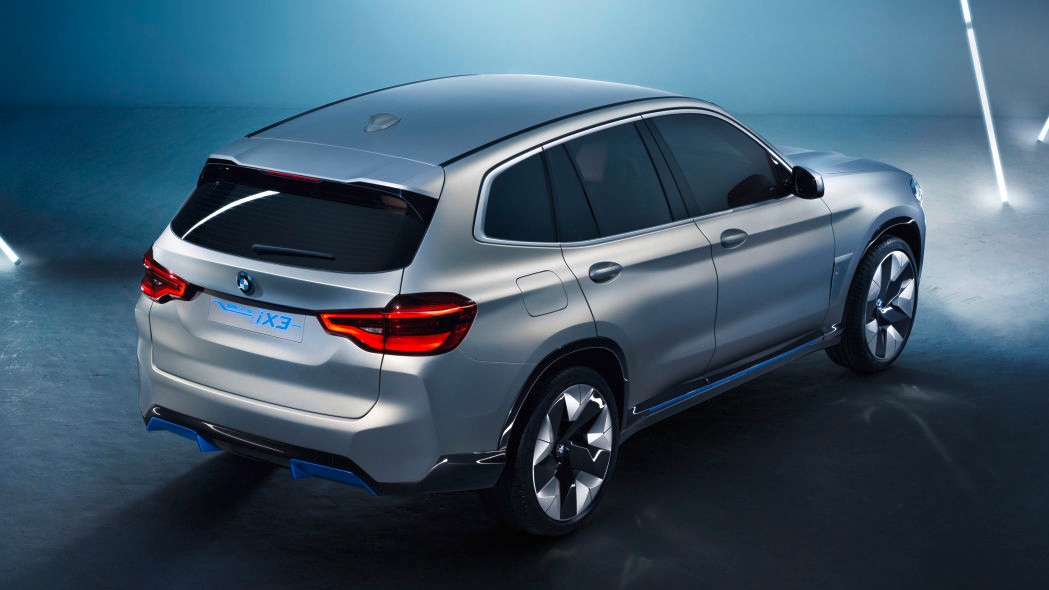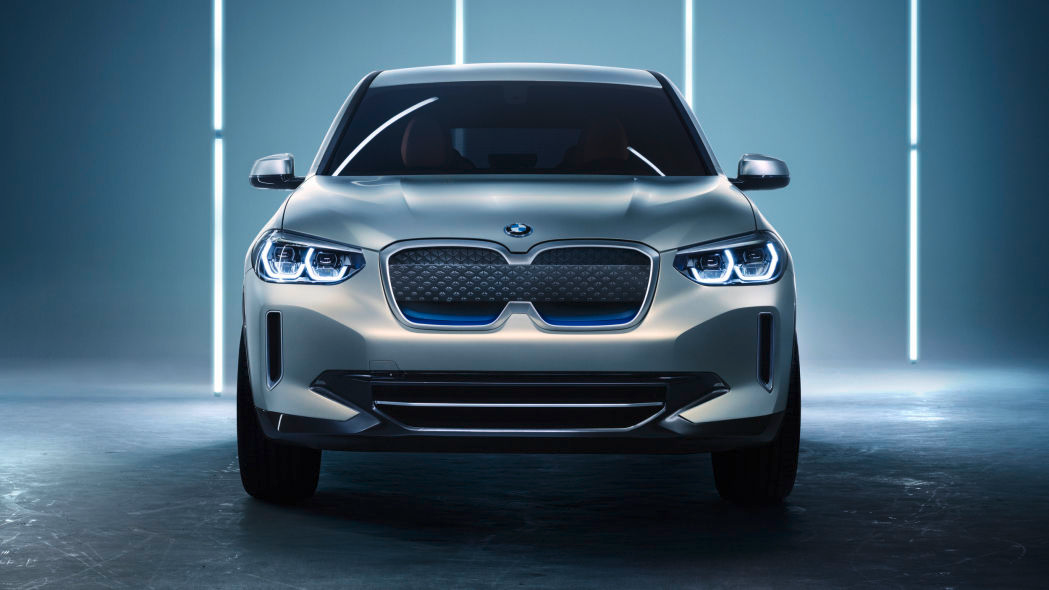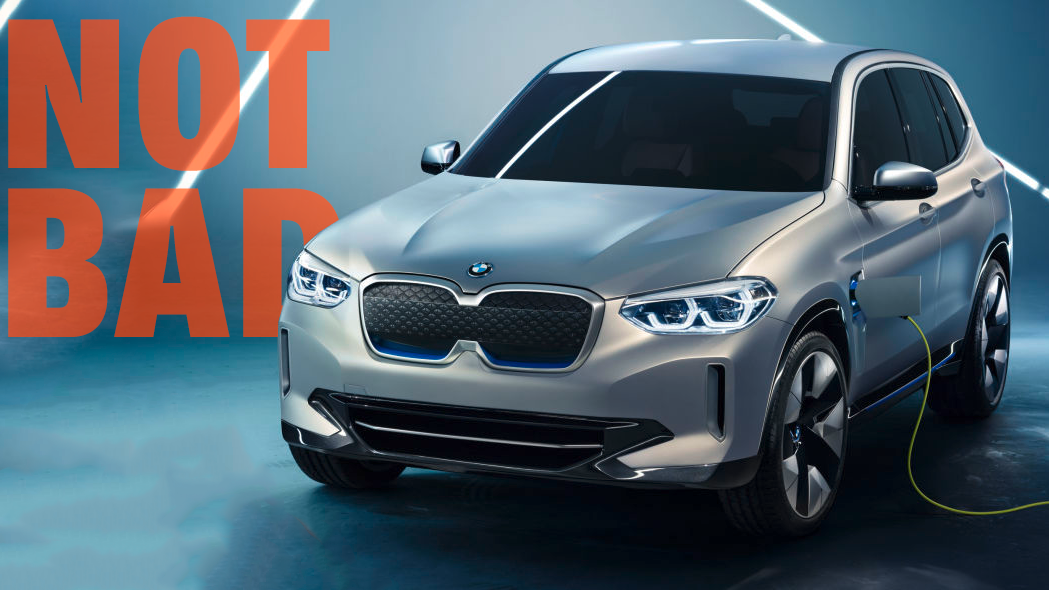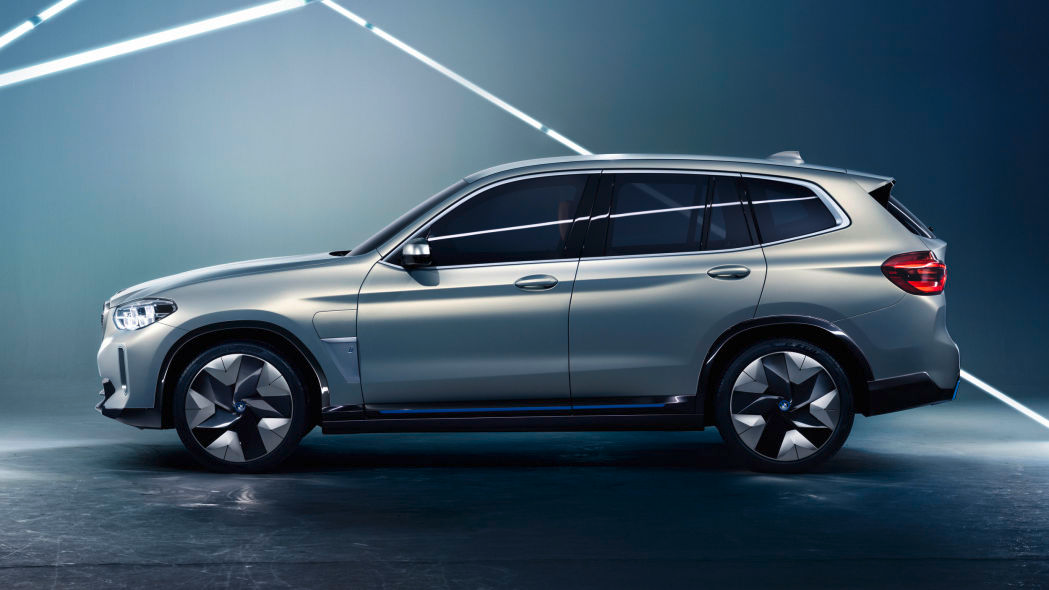The 2021 BMW iX3 Electric Crossover Should Actually Be Pretty Good
Mercedes-Benz, Audi, and even Jaguar have already pushed electric crossovers into production, and now BMW has to catch up. The good news is the electrified X3 called the BMW iX3 is shaping up to actually be a pretty solid car.
While BMW hasn't released official U.S. specifications, we can get a lot of information from the European stuff. The BMW iX3 is expected to go into production later this year with rear-wheel drive, a combined motor and transmission drive unit making 286 horsepower and around 295 lb-ft of torque, and an estimated range of over 440 km on the WLTP testing cycle, or roughly 270 miles from a 74 kWh battery pack.
As we learned with the Porsche Taycan, the U.S. EPA range estimate will likely be much lower, closer to 200 miles, after factoring in hot and cold condition testing, which provides a broader range of conditions at greater extremes for the powertrain to perform in versus the WLTP tests, often bringing the U.S. range estimate much lower.
Regardless, those numbers are a pretty good deal as far as power is concerned when compared to the base gasoline-powered BMW X3, which has 248 HP and 258 lb-ft of torque from its 2.0-liter four-cylinder. Of course, if you do the math, the gas X3's fuel tank gets you about 465 miles of "range" based on its combined MPG. But that kind of practicality won't do the planet any favors.

While these iX3 figures don't match up to the Mercedes-Benz EQC or Audi E-Tron, both of those models tout more hardware for their more impressive performance figures, also offering all-wheel drive. They're likely priced higher than the rear-wheel-drive iX3 will ask for, though higher performance versions of the iX3, including an all-wheel-drive model, are likely on the way.
The iX3 will be BMW's first EV crossover, and its most practical EV so far. The fifth-generation "BMW eDrive technology" powertrain technology will also underpin the production BMW iNext crossover later in 2021.
Oh yeah, I should also probably mention the regular BMW X3 isn't going anywhere anytime soon.


